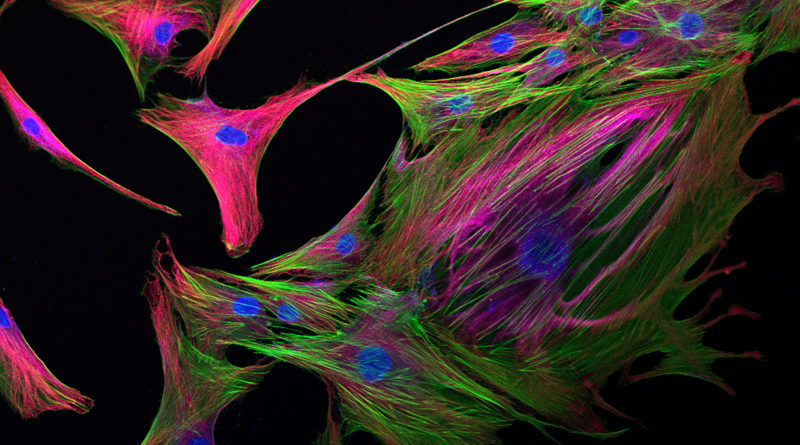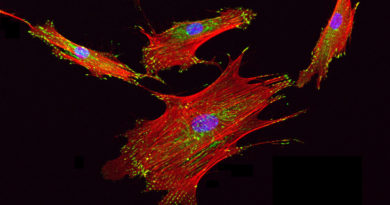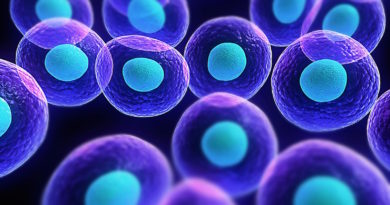SCLERODERMIE SYSTÉMIQUE – Greffe de cellules stromales mésenchymateuses allogéniques (Tissu adipeux) – Inclusions ouvertes.
Utilisation des cellules stromales mésenchymateuses allogéniques* dérivées de tissu adipeux pour le traitement de la sclérodermie systémique sévère: étude clinique de phase I/II randomisée
Numéro ClinicalTrials.gov : NCT06722105
Financement : PHRC 20-0558
RESUME
Acronyme: MSC-AT-SSc
Investigateur coordonnateur:
Professeur Dominique FARGE-BANCEL
Unité de Médecine Interne UF04, Centre de Référence des Maladies auto-immunes systémiques Rares d’Ile-de-France MATHEC, Filière FAI2R,
Hôpital St-Louis
1, avenue Claude Vellefaux, Paris 75010 Paris
Contact: Pauline LANSIAUX, Ingénieure de recherche, pauline.lansiaux@aphp.fr; Ingrid MUNIA, coordinatrice d’études cliniques, ingrid.munia@aphp.fr; +33(0)142385093
Directrice scientifique :
Professeur Karin TARTE
Directrice du Laboratoire SITI
CHU Pontchaillou
2, rue Henri Le Guilloux
Tel: +33 (0)2 232 345 12
Email: karin.tarte@univ-rennes1.fr
Promoteur: Assistance Publique-Hôpitaux de Paris
Justification scientifique:
La sclérodermie systémique (SSc) est une maladie auto-immune (MAI) systémique rare, grave et chronique, caractérisée par une vasculopathie, un dérèglement immunitaire et une fibrose entraînant un dysfonctionnement de plusieurs organes (principalement la peau, les poumons, le cœur, l’appareil gastro-intestinal et les reins). Cette pathologie est associée à une morbidité et une mortalité élevées, une altération de la qualité de vie liée à la santé, le tout à un coût élevé pour les patients et la société.
Les traitements sont essentiellement symptomatiques et seule l’autogreffe de cellules souches hématopoïétiques (ACSH) a démontré une amélioration de la survie globale et de la survie sans événement à long terme dans la SSc. Cependant, l’ACSH est contre-indiquée dans la SSc en cas d’atteinte viscérale avancée et est toujours associée à un risque de toxicité chez les patients éligibles. Il est donc nécessaire d’identifier des traitements sûrs et efficaces pour les formes sévères de SSc.
Les cellules stromales mésenchymateuses (CSM) sont des cellules multipotentes, dotées de propriétés immunomodulatrices, pro-angiogéniques et anti-fibrotiques, qui peuvent cibler la pathogénie de la SSc et ses manifestations cliniques. L’utilisation croissante dans diverses indications des CSM, prélevées notamment dans la moelle osseuse (CSM(MO)), le tissu adipeux (CSM(TA)) ou le cordon ombilical (CSM(CO)), fournit des preuves cohérentes de leur innocuité chez l’homme. L’efficacité de l’injection intraveineuse (IV) de CSM(MO) pour traiter la maladie aiguë du greffon contre l’hôte a conduit à leur autorisation de mise sur le marché en 2012 et l’utilisation des CSM(AT) (Alofisel) est approuvée pour le traitement des fistules sévères de la maladie de Crohn depuis 2018.
Les CSM représentent une approche thérapeutique prometteuse pour la SSc. Nous avons précédemment a) montré l’existence d’anomalies constitutives des CSM(MO) présentes chez les patients atteints de SSc, soulignant l’importance d’utiliser des CSM d’origine allogénique pour traiter les patients, b) publié le premier essai de phase I/II utilisant l’injection IV de CSM(MO) allogéniques à doses croissantes chez 20 patients atteints de SSc sévère (ClinicalTrials.gov : NCT02213705, PHRC AOM 11-250), sans aucun problème de sécurité et avec une amélioration significative de la fibrose cutanée 3 à 6 mois après l’injection qui semble s’amoindrir par la suite, justifiant la nécessité d’injections répétées pour prolonger l’effet des CSM.
Des études expérimentales in vitro et in vivo, et cliniques suggèrent que les propriétés des CSM varient en fonction de leur tissu d’origine/source. Il a ainsi été montré que, en comparaison aux CSM(MO), les CSM(TA) de donneurs sains sont plus faciles à récolter et présentent une plus grande capacité de prolifération avant d’entrer en sénescence, une plus grande stabilité génétique et des propriétés immunosuppressives supérieures.
Compte tenu du rationnel précédent, nous faisons l’hypothèse que l’utilisation de CSM (TA) allogéniques issus de donneurs sains, produits par l’EFS-plateforme MTI (Site de Créteil), est associée à a) l’absence de toxicité chez les patients SSc en lien avec les CSM(TA) injectés et b) un profil d’efficacité des CSM(TA) dans la SSc qui augmente avec le nombre d’injection.
Objectif et critère d’évaluation principal
Objectif principal:
Evaluer la sécurité d’une (à M0) à deux (à M0 et M3) injection(s) de CSM(AT) allogéniques intraveineuses à la dose de 2×106 CSM(AT)/kg, à un mois après chaque injection
Critère d’évaluation principal : le taux d’évènements indésirables graves (EIG) liés au traitement, définis comme les évènements indésirables de grade supérieur ou égal à 3 selon les critères CTCAE (NCI Common Terminology Criteria for Adverse Events) v5.0 attribués à(aux) injection(s) de CSM(TA), à un mois après chaque injection (M1 et M4). Tous les événements indésirables seront évalués par un comité de surveillance des données et de la sécurité.
Objectifs et critères d’évaluation secondaires
Objectifs secondaires :
1- Sécurité pendant la perfusion, dans les 24 premières heures de perfusion et pendant tout le suivi de l’étude
2- Signaux d’efficacité pour guider les études futures, en utilisant des critères d’évaluation précédemment validés dans la SSc ou utilisés dans d’autres essais de thérapie cellulaire : la sclérose cutanée, la fonction pulmonaire et la qualité de vie
3- Analyse de la réponse au traitement, de la survie sans progression, des scores composites GRCS (Global Rank Composite Score) à M3, M6, M9 et M12 et CRISS (ACR Provisional Composite Response Index for Clinical Trials in Early Diffuse Cutaneous Systemic Sclerosis) pour les patient atteints de SSc à un stade précoce à M3, M6, M9 et M12
4- Analyse de la survie globale et évaluation des causes de décès.
5- Impact d’une ou de deux injections de CSM(AT) allogéniques à 3 mois d’intervalle sur la réponse immunitaire, y compris l’immunophénotypage et l’allo-immunisation jusqu’à M6 après le début du traitement.
6- Coût-efficacité d’une ou deux injections de CSM(AT) allogéniques par rapport à l’absence de CSM chez les patients atteints de SSc sévère.
Objectifs secondaires :
1) Taux d’évènements indésirables graves (EIG) liés au traitement définis comme des EI de grade supérieur ou égal à 3 selon les critères CTCAE v5.0 attribués à(aux) injection(s) de CSM(AT) au moment et dans les 24 premières heures des injections et pendant toute la durée du suivi à M0, M3, M6, M9 et M12.
2) Critère principal d’efficacité: Différence du score cutané de Rodnan modifié (mRSS) entre M0 et M12.
3) Autres critères d’efficacité liés à la maladie :
-
a- mRSS à M3, M6 et M9
b- Questionnaires OMS sur l’indice de performance (PS) et la qualité de vie liée à la santé (HRQoL) : Scleroderma-Health Assessment Questionnaire (SHAQ), Short Form (36) health survey (SF-36v2) et EQ-5D-5L à M0, M3, M6 et M12 ;
c- Capacité vitale forcée (CVF) et capacité de diffusion du monoxyde de carbone dans les poumons (DLCO) à M0, M6 et M12.
4) Réponse au traitement, définie comme l’un des éléments suivants : diminution du mRSS > 25 %, augmentation de la CVF > 10 % et/ou augmentation de la DLCO>10 %, sans nécessité d’un traitement immunosuppresseur supplémentaire à l’exception de faibles doses de stéroïdes (inférieures à 10 mg par jour) à M3, M6, M9 et M12.
5) Survie sans progression à M12, avec la progression définie comme l’un des éléments suivants : diminution de la CVF > 10 % ou de la DLCO > 15 % ; diminution de la fraction d’éjection ventriculaire gauche (FEVG) > 15 % ; perte de poids > 15 % ; diminution de la clairance de la créatinine > 30 % ; augmentation du mRSS > 25 % ; et/ou augmentation du SHAQ > 0,5.
6) Valeurs du GRCS à M3, M6, M9 et M12.
7) Valeurs du CRISS (pour les patients atteints de SSc au stade précoce) à M3, M6, M9 et M12.
8) Survie globale à M12
9) Sous-populations myéloïdes et lymphocytaires à M0, M1, M3, M4, M6
10) Détection et identification des anticorps anti-HLA spécifiques du donneur à M0, M3 et M6.
11) Coût supplémentaire par QALY (année de vie ajustée à la qualité) gagnée par l’injection IV unique et répétée de MSC(AT) allogéniques à 12 mois.
12) Surcoût, par EIG de grade ≥3 (CTC-AE), évité par l’injection unique et répétée de MSC(AT) allogéniques à 12 mois.
Schéma expérimental : Essai de phase I-II multicentrique randomisé à trois bras, contrôlé par placebo, en double aveugle
Population concernée : Patients adultes atteints de sclérodermie systémique sévère réfractaire
CRITERES D’INCLUSION/EXCLUSION
Critères d’inclusion
1- Consentement daté et signé ;
2- Patient disposé à se conformer à toutes les procédures relatives à l’étude et à être disponible pendant toute la durée de l’étude ;
3- Homme ou femme, âgé de plus de 18 ans
4- Patients atteints de SSc selon les critères de classification 2013 de l’American College of Rheumatology/European League Against Rheumatisme (ACR/EULAR) pour la SSc;
5- Maladie sévère avec soit:
-
a- une durée de la maladie de 2 ans ou moins avec mRSS ≥ 20 et (une vitesse de sédimentation érythrocytaire > 25 mm ou CRP anormale > 5 mg/l et/ou hémoglobine < 11 g/dL), ou
b- mRSS ≥ 15 sans aucune restriction quant à la durée de la maladie et au moins une atteinte d’un organe majeur telle que définie par:
i- une atteinte respiratoire caractérisée par une DLCO et/ou une CVF < 80 % et des signes de maladie pulmonaire interstitielle (à la radiographie pulmonaire et/ou par tomodensitométrie à haute résolution (scanner)) et/ou Hypertension pulmonaire modérée avec pression artérielle pulmonaire systolique initiale (PAPs) au repos > 35 mmHg et inférieure à 50 mmHg par échocardiographie cardiaque, ou pression artérielle pulmonaire moyenne (PAPm) > 20 mmHg et < 40 mmHg lors d'un cathétérisme cardiaque droit
ii- atteinte rénale caractérisée par une crise rénale passée, une anémie hémolytique microangiopathique et/ou une insuffisance rénale non expliquée par d’autres causes que la SSc;
iii- atteinte cardiaque caractérisée par une insuffisance cardiaque congestive réversible, des troubles du rythme auriculaire ou ventriculaire tels que des épisodes récurrents de fibrillation ou de flutter auriculaire, une tachycardie paroxystique auriculaire récurrente, un bloc AV du 2e ou 3e degré, un épanchement péricardique léger à modéré et/ou la présence d’une atteinte à l’IRM (cartographie T1 ou T2 augmentée, rehaussement tardif au gadolinium, signe D septal). Toutes les causes d’atteinte d’organes doivent être attribuées à la SSc.
6- Contre-indication, réponse inadéquate ou refus de subir une AHSCT (jugés par le patient et le médecin).
7- Contre-indication, réponse inadéquate, réticence ou événements indésirables nécessitant l’arrêt d’un traitement immunosuppresseur conventionnel (MMF, méthotrexate) ;
8- Les femmes en âge de procréer doivent utiliser une contraception très efficace ;
9- Les hommes en âge de procréer doivent utiliser des préservatifs.
10- Assurance maladie.
Critères d’exclusion:
1- Âge < 18 ans ou > 70 ans
2- Grossesse ou refus d’utiliser une contraception adéquate ;
3- Atteintes d’organes mettant en jeu le pronostic vital, définie comme suit : DLCO (corrigé pour l’hémoglobine) < 30 %; FEVG < 40 % par échocardiographie cardiaque ; hypertension pulmonaire avec PAPs au repos > 50 mmHg par échocardiographie cardiaque, ou PAPm > 40 mmHg par cathétérisme cardiaque droit ; débit de filtration glomérulaire < 30mL/min;
4- Hépatite active ou chronique (ASAT, ALAT > 3 fois la limite supérieure de la normale);
5- Néoplasme de moins de 5 ans, à l’exception des carcinomes basocellulaires ou in situ du col de l’utérus ou des myélodysplasies concomitantes;
6- Hypertension non contrôlée;
7- Infection aiguë ou chronique non contrôléec;
8- Infection par le VIH-1 ou le VIH-2;
9- IMC < 16,5 kg/m2;
10- Trouble psychiatrique grave;
11- Insuffisance de la moelle osseuse, définie par une neutropénie < 1 x 10^9/L, une thrombopénie < 50 x 10^9/L, une anémie < 8 g/dL, une lymphopénie < 0,5 x 10^9/L;
12- Incapacité à fournir un consentement éclairé;
14- Patient inclus dans un autre essai clinique interventionnel;
15- Patient sous tutelle.
Médicament expérimental :
Les CSM allogéniques dérivées du tissu adipeux (CSM(AT)) ou un placebo seront injectés par perfusion intraveineuse lente selon le schéma suivant:
– bras 0 : placebo à M0 et M3
– bras 1 : 1 injection de CSM(AT) (2×10^6 cellules/kg) à M0 et 1 injection de placebo à M3
– bras 2 : 1 injection de CSM(AT) (2×10^6 cellules/kg) à M0 et 1 injection de CSM(AT) (2×10^6 cellules/kg) à M3.
Chaque injection sera administrée par voie intraveineuse, sur une de 45 min à 1 heure.
Les patients inclus dans le bras 0 auront la possibilité de recevoir 1 injection de CSM(TA) (2×1^06 cellules/kg) à la fin de l’étude après levée de l’insu et une fois que la preuve de la sécurité de l’injection de CSM(TA) aura été apportée.
Traitement comparateur: Placebo
Nombre de participants à inclure: 18 patients
Nombre de centres : 2: Hôpital St Louis, Paris et CHU Toulouse
Durée de l’étude
Période d’inclusion : 12 mois
Durée de participation (traitement + suivi): 12 mois
L’étude sera dotée d’un comité de surveillance de la sécurité des donnéesOui



